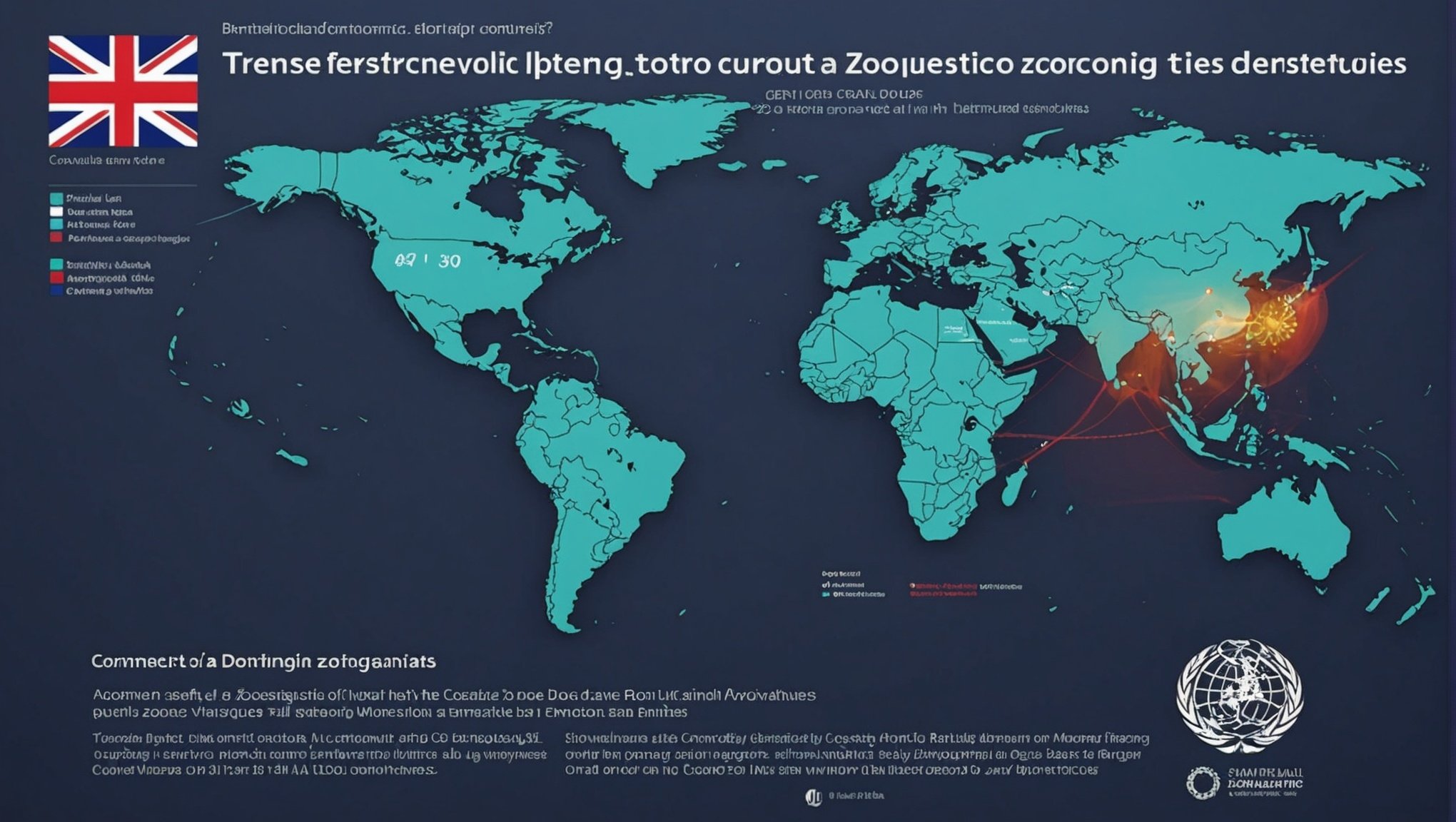Emerging zoonotic diseases pose a significant threat to global health, and UK virologists are uniquely positioned to make substantial contributions to combating them. With a wealth of research expertise and access to advanced technologies, these scientists can identify, monitor, and respond to outbreaks effectively. Fostering international collaboration and sharing insights will enhance disease prevention efforts, ensuring a more coordinated global approach. Explore how the UK can lead innovative strategies in this vital field, bridging gaps and fortifying defenses against future outbreaks.
Overview of Emerging Zoonotic Diseases
Emerging zoonotic diseases are infections that are transmitted from animals to humans. These diseases pose significant global health threats due to their ability to spread rapidly and cause widespread illness. Examples include the Ebola virus, which originates from fruit bats, and the Zika virus, transmitted by mosquitoes. Understanding these diseases is crucial as they can lead to pandemics if not managed effectively.
Also read : Explore personalized therapy options with a dubai psychotherapist
Current statistics highlight the prevalence and impact of zoonotic diseases worldwide. According to the World Health Organization (WHO), over 60% of known infectious diseases in humans are zoonotic, and approximately 75% of new or emerging infectious diseases are of animal origin. This underscores the urgent need to address these global health threats.
Understanding zoonotic transmission pathways is vital for prevention and control. Transmission can occur through direct contact with infected animals, consumption of contaminated food or water, or through vectors such as mosquitoes and ticks. By identifying and disrupting these pathways, we can reduce the risk of outbreaks. Efforts to monitor wildlife, improve sanitation, and educate communities are essential components of managing zoonotic diseases.
Also to read : Empower yourself: essential coaching resources for growth
Role of UK Virologists in Zoonotic Disease Research
UK virologists play a pivotal role in advancing our understanding of zoonotic diseases through their extensive research contributions. Their work is crucial in identifying and mitigating the threats posed by these diseases.
Key Research Initiatives
UK virologists have spearheaded numerous research initiatives aimed at tackling zoonotic diseases. For example, the Pirbright Institute focuses on studying viral pathogens that affect both humans and animals, providing insights into virus-host interactions. This research is instrumental in developing effective vaccines and therapies.
Notable Case Studies
Several notable case studies have emerged from UK virology studies. One significant finding includes the discovery of how certain viruses adapt to new hosts, shedding light on the mechanisms of viral evolution. This understanding helps predict potential outbreaks and informs prevention strategies.
Contributions to Understanding
The contributions of UK virologists extend to understanding viral evolution and transmission. Their studies on the genetic changes in viruses offer valuable information on how zoonotic diseases spread. By analysing these changes, they provide critical data that supports global efforts to prevent pandemics. The work of UK virologists is indispensable in the fight against zoonotic diseases, ensuring a safer future for all.
Collaborative Efforts in Global Health
International collaboration plays a crucial role in addressing the challenges posed by zoonotic diseases. UK virologists actively engage in global health partnerships, working alongside international organisations to enhance research efforts. These partnerships facilitate the exchange of knowledge and resources, which is vital for developing effective strategies against zoonotic threats.
Overview of Partnerships
UK virologists collaborate with entities like the World Health Organization and the Global Virome Project. These alliances focus on understanding zoonotic disease dynamics and improving response mechanisms. By pooling expertise, they can tackle complex issues more efficiently.
Successful Collaborative Projects
Notable examples include joint research initiatives that have led to breakthroughs in vaccine development. For instance, collaborative studies on Ebola have significantly advanced our understanding of the virus, resulting in improved prevention measures. Such projects highlight the power of research networks in driving innovation.
Importance of Data Sharing
Sharing data and resources is essential in the fight against zoonotic diseases. Open access to research findings accelerates the development of solutions and enhances preparedness. By fostering a culture of transparency, international collaboration ensures a more robust global response to emerging health threats.
Funding and Support for Virology Research
In the UK, research funding for virology is crucial in advancing the fight against zoonotic diseases. Major health organizations play a significant role in providing financial support. Key funding bodies include the Medical Research Council (MRC), the Wellcome Trust, and the Biotechnology and Biological Sciences Research Council (BBSRC). These organizations offer substantial grant opportunities to virologists, enabling groundbreaking research.
The impact of this funding is profound. It enhances research capabilities by facilitating access to state-of-the-art laboratories and advanced technologies. This support results in significant outcomes, such as the development of effective vaccines and therapies, which are vital in controlling zoonotic diseases. Moreover, funding allows for the recruitment of skilled researchers, further boosting the UK's virology research landscape.
However, securing research funding presents challenges. The competition for grant opportunities is intense, with numerous researchers vying for limited resources. Additionally, the application process can be complex and time-consuming, requiring detailed proposals and justifications. Despite these hurdles, the commitment of health organizations to fund virology research remains steadfast, ensuring continued progress in understanding and combating zoonotic diseases.
Public Health Impacts of Virology Research
Virology research plays a pivotal role in shaping public health strategies and policies. By providing insights into viral behaviour and transmission, researchers help inform guidelines that protect communities. For instance, studies on viral spread have led to the development of effective disease prevention measures, such as vaccination programmes and quarantine protocols, which are essential in curbing outbreaks.
Informing Health Guidelines
Virologists contribute significantly to crafting public health guidelines. Their research findings offer evidence-based recommendations that guide health authorities in implementing measures to control zoonotic diseases. This ensures that policies are grounded in scientific understanding, enhancing their effectiveness.
Case Studies in Disease Prevention
Several case studies highlight successful disease prevention strategies informed by virology research. For example, the identification of key transmission pathways for viruses like Zika has led to targeted interventions, reducing infection rates. These strategies exemplify the critical role of virology in public health.
Shaping Health Policy
Virologists also play a crucial role in shaping health policy decisions. By advising policymakers on the latest scientific developments, they ensure that policies are responsive to emerging threats. This collaboration between science and policy is vital for maintaining public health and safety.
Case Studies of Successful Interventions
Exploring case studies of successful interventions provides valuable insights into controlling zoonotic diseases. UK virologists have been at the forefront of implementing effective strategies, showcasing the potential of well-executed plans.
Detailed Analysis of Interventions
One notable intervention success involved the control of the Ebola outbreak. UK virologists collaborated with international teams to deploy rapid diagnostic tests and implement community education programs. These measures significantly curbed the spread of the virus, highlighting the importance of swift and coordinated responses.
Impact on Outbreak Control
The impact of these interventions on outbreak control has been profound. By employing targeted strategies, such as vaccination campaigns and quarantine protocols, the spread of zoonotic diseases has been effectively managed. These efforts demonstrate how strategic planning and execution can lead to substantial public health benefits.
Lessons Learned
From these case studies, several lessons have emerged. The importance of early detection and rapid response cannot be overstated. Additionally, community engagement and education are crucial in ensuring the success of interventions. These insights underscore the need for ongoing research and collaboration to enhance zoonotic disease control efforts.
Recommendations for Future Research Directions
To effectively combat emerging diseases, it is crucial to identify gaps in current research and focus on future research directions. One significant gap lies in understanding the virology trends that contribute to zoonotic disease outbreaks. By pinpointing these trends, researchers can develop predictive models to anticipate future outbreaks, thus enhancing preparedness.
Suggested areas for future investigation include the genetic evolution of viruses and their adaptation mechanisms. Understanding how viruses mutate and adapt to new hosts can provide insights into preventing zoonotic spillovers. Additionally, exploring the role of environmental changes in disease emergence can offer valuable information for mitigating risks.
An interdisciplinary approach is vital in virology research. By combining expertise from fields such as ecology, genetics, and epidemiology, researchers can gain a comprehensive understanding of zoonotic diseases. This collaboration facilitates the development of innovative solutions and improves the effectiveness of interventions.
To address these research needs, fostering partnerships between academic institutions, government bodies, and international organisations is essential. By pooling resources and knowledge, the scientific community can advance our understanding of zoonotic diseases and enhance global health security.
The Role of Technology in Zoonotic Disease Research
Technological advancements have revolutionised virology research, providing innovative methods to understand and combat zoonotic diseases. The integration of big data and bioinformatics is particularly transformative, offering unprecedented insights into disease patterns and transmission pathways.
Big data analytics enable researchers to process vast amounts of information quickly, identifying trends that might otherwise go unnoticed. This capability is crucial for predicting potential outbreaks, as it allows for the early detection of emerging threats. Bioinformatics, on the other hand, facilitates the analysis of genetic data, helping scientists understand viral evolution and adaptation mechanisms.
Case examples illustrate the impact of technology in outbreak prediction and response. Advanced data analysis tools have been employed to model the spread of diseases like Ebola, aiding in the development of targeted intervention strategies. Similarly, innovative methods such as genomic sequencing have been pivotal in identifying new virus strains, enabling timely vaccine development.
The use of technology in virology not only enhances research capabilities but also improves global health security. By harnessing these tools, researchers can better anticipate and respond to zoonotic threats, ultimately reducing the risk of widespread outbreaks.
Policy Recommendations for Strengthening Global Health
Enhancing global health strategies is essential in addressing zoonotic disease prevention. Proposed policy changes should focus on increasing international collaboration. By fostering partnerships among countries, we can share resources and knowledge, leading to more effective prevention measures. Strengthening these alliances will also improve the capacity to respond to outbreaks swiftly.
Funding and support for virology research are crucial components of this strategy. Increased investment in research allows for the development of innovative solutions and ensures ongoing progress in understanding zoonotic diseases. Governments and international bodies should prioritise funding to maintain a robust research infrastructure.
Integrating research findings into health policy frameworks is vital for effective zoonotic disease prevention. Policies should be informed by the latest scientific discoveries to enhance their effectiveness. This requires a systematic approach to translating research into actionable health guidelines. By doing so, we can ensure that health policies are adaptive and responsive to emerging threats.
To achieve these goals, it is important to establish clear communication channels between researchers and policymakers. This will facilitate the flow of information and ensure that scientific insights are effectively utilised in shaping health policies.











